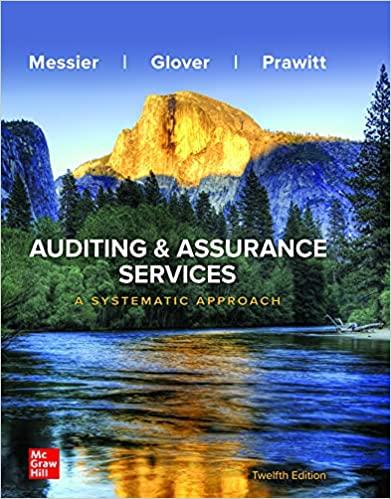Question
TAX ACCOUNTING: Spartan Foods is a peanut processor based in Marianna, Florida. Spartan Foods stock is traded on the NASDAQ under the symbol SPFO. The
TAX ACCOUNTING:
Spartan Foods is a peanut processor based in Marianna, Florida. Spartan Foods stock is traded on the NASDAQ under the symbol SPFO. The company buys peanuts from farmers in Florida and Georgia and undertakes various processes to bring to market a number of peanut-based food products including peanut milk, peanut flour, peanut oil and, (most recently) peanut meat alternative. The company has been in business since 1980 and reported profits in all but 2 years of its existence. In 2018 Spartan Foods hired a new CFO with experience in the food industry and an extensive tax background. The new CFO contacted the accounting firm and launched a project to identify and take advantage of Research and Experimentation Tax Credits for the corporation. Spartan Foods determined that its base amount of expenses for research and experimentation were .5% of revenue for the base years at issue this was an estimate from the firms external CPA firm. There were three research and experimentation projects undertaken as part of the 2017 and 2018 tax years that were claimed for research and experimentation tax credits in those tax years. Project #1 was an ultraviolet light treatment for peanut milk. UV light is a method of sterilization for food products however UV light can cause changes in the chemical composition of food products. Spartan Foods spent $1M on machinery and labor to test peanut milk UV sterilization in an attempt to determine whether the process would be viable. The existing peanut milk sterilization process requires boiling the milk during the packaging process resulting in product loss, high energy consumption and slower production than the UV process would (in theory) use. No existing peanut milk producers use UV sterilization. Project #1 spanned 2 years, involved dozens of tests at varying speeds and included lab analysis of the treated samples all conducted by Spartan Foods chief product quality control person, a 33-year veteran of the company nicknamed Mrs. Peanut for her dedication to all things peanut. Project #2 was a peanut oil speed production experiment. At the beginning of the study the centrifuges that spin peanuts extracting the oil from the nut spin at 7800 RPM. The idea was to spin the centrifuges faster at 9800 RPM to shorten the time to extract the peanut oil and (hopefully) extract more oil from the nut based on the greater forces exerted. The project cost $.5M composed of additional bracing for existing machines, labor of factory personnel and raw materials. The project took 9 months to complete and was unsuccessful on account of repeated machine breakdowns as the machines were used at higher speeds than originally designed. A previous project at a higher speed had also proved ineffective. Project #3 was (and continues to be) peanut meat. Following in the footsteps of other beyond meat products. The company spent $2.5M on this project over the two tax years at issue. .5M has been on consumer taste tests of the product with the remaining funds spent on new machinery, labor, peanuts and food bonding agents such as celery extract to bind the peanut slurry into a meat like product. The process of forming peanuts into meat has been a science experiment requiring molecular study be members of the Spartan food team using the food testing lab at the companys plant. The project has been led by Stacy Spartan, the companys VP of products. The company recognizes that there has never been marketable peanut meat and the non-meat alternative market is fiercely competitive. The company also recognizes the potential for breakthrough technology and significant upside if the project is successful.
Spartan Foods tax return was examined by the IRS and all three Projects Research and Experimentation Credits were challenged on their merits using the four tests under 26 USC 41. What result?
Step by Step Solution
There are 3 Steps involved in it
Step: 1

Get Instant Access to Expert-Tailored Solutions
See step-by-step solutions with expert insights and AI powered tools for academic success
Step: 2

Step: 3

Ace Your Homework with AI
Get the answers you need in no time with our AI-driven, step-by-step assistance
Get Started


